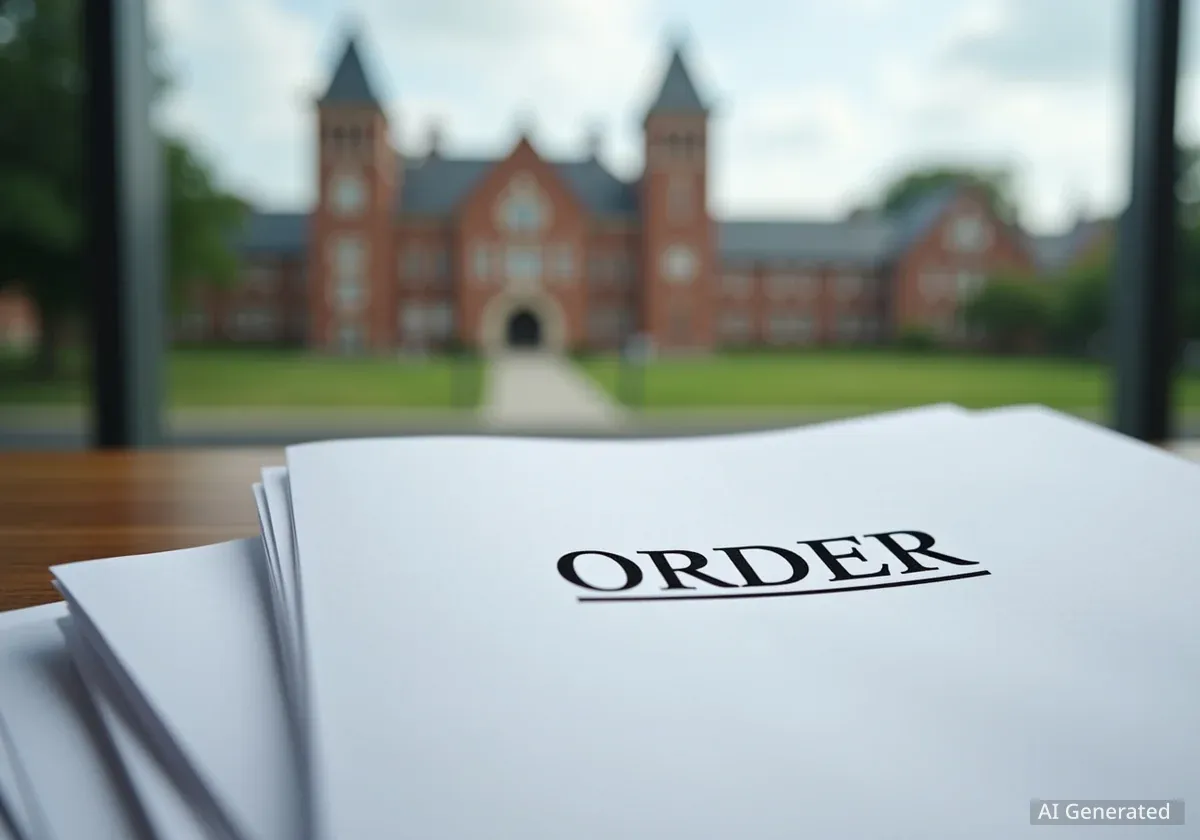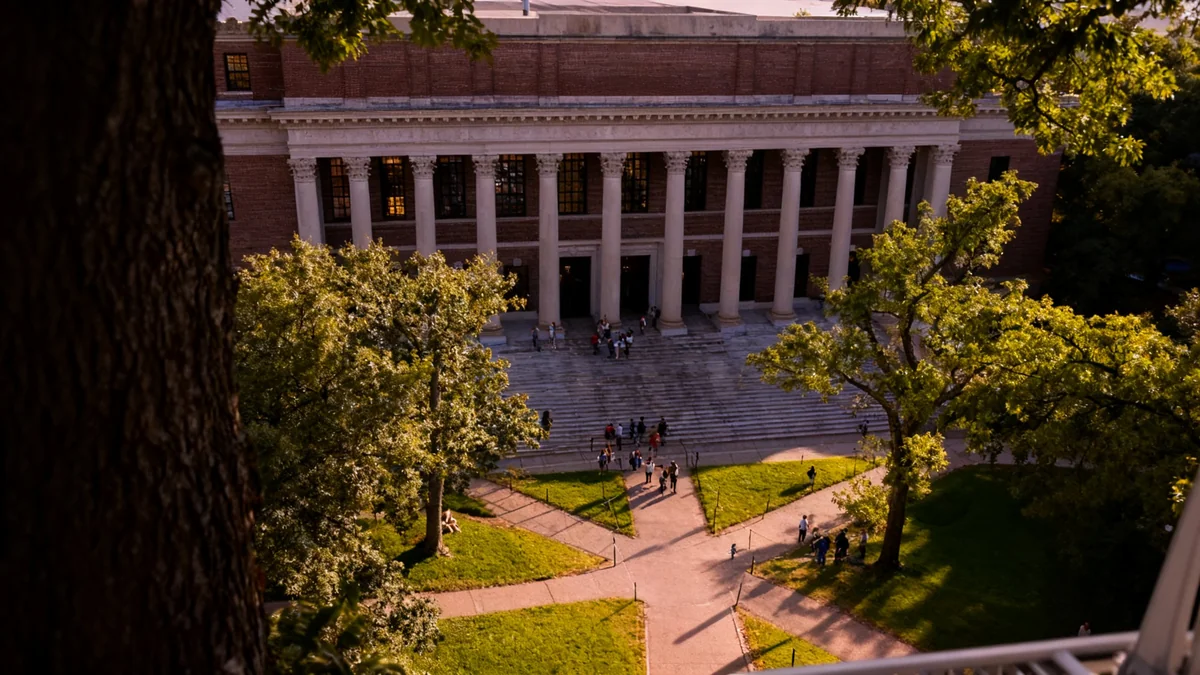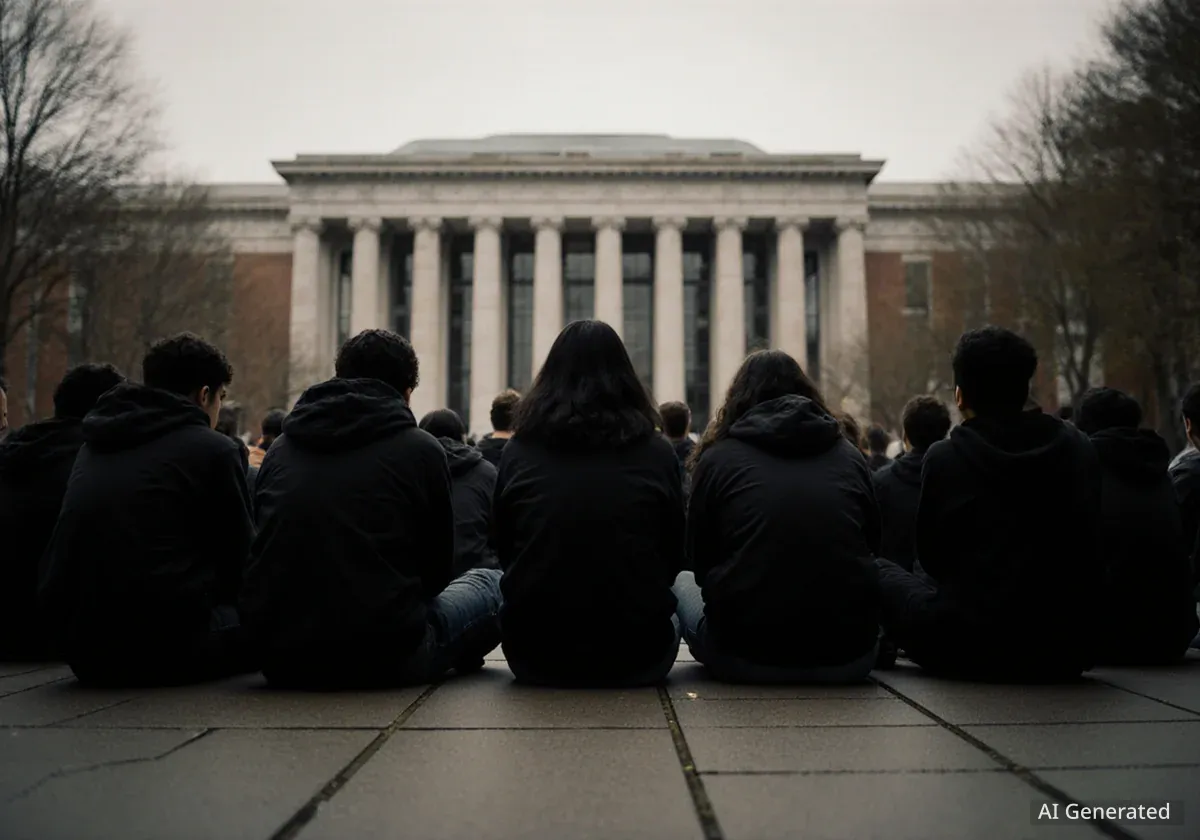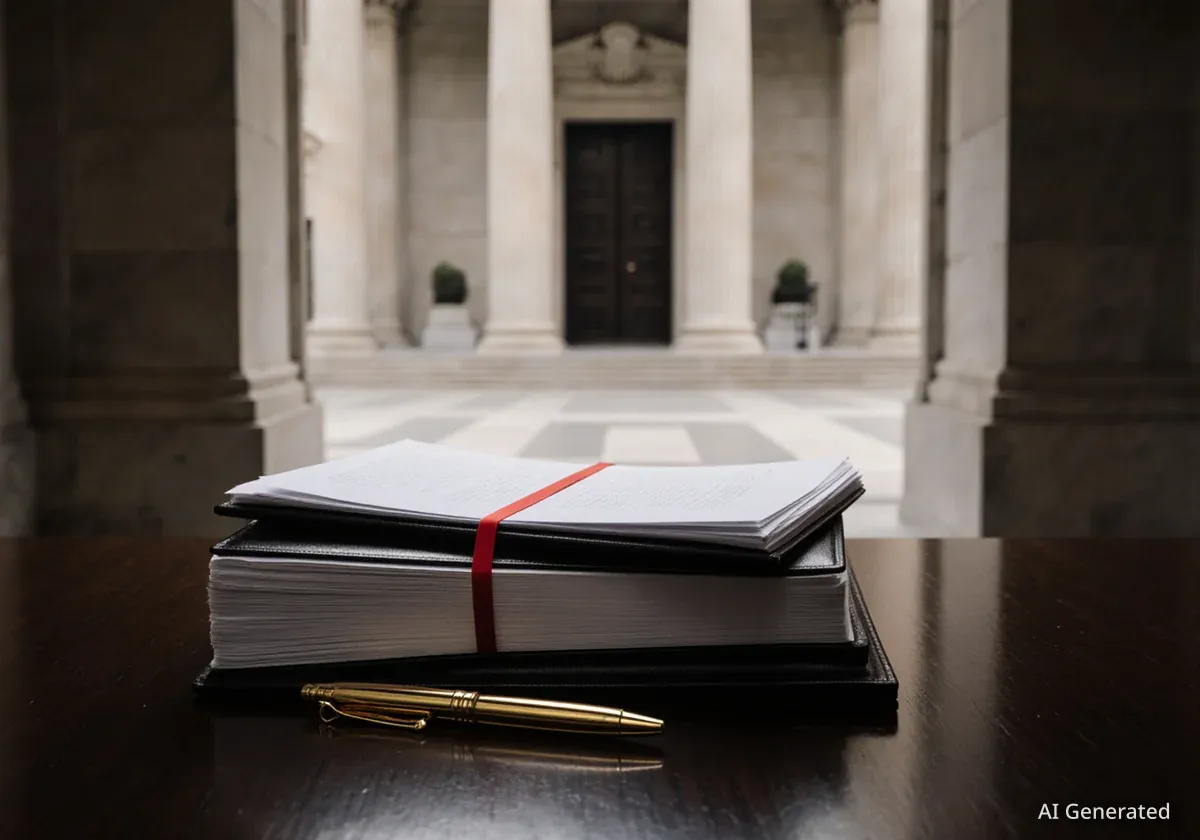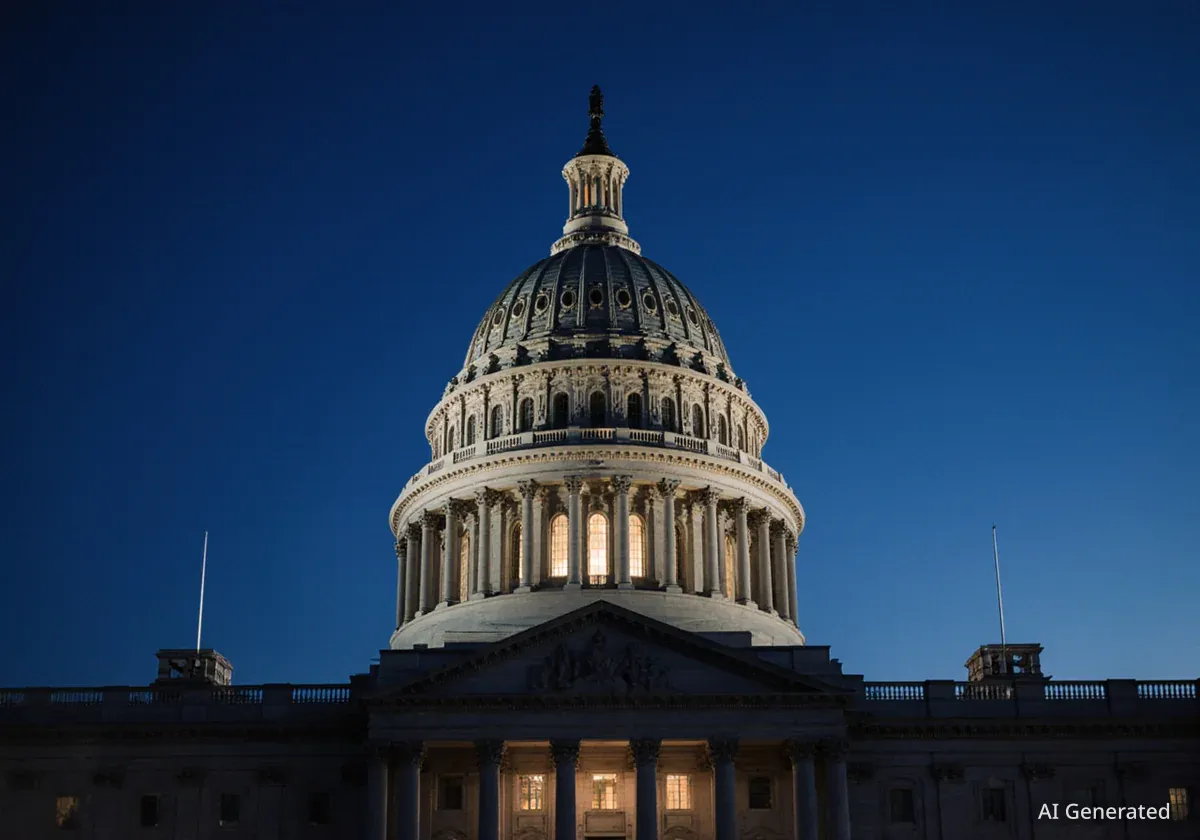A federal judge has ordered the Trump administration to restore $500 million in grant funding to the University of California, Los Angeles (UCLA). The ruling marks a significant development in the ongoing dispute between the federal government and several major American universities over campus policies.
U.S. District Judge Rita Lin granted a preliminary injunction on Monday, stating the administration likely violated federal law by freezing the funds without a proper explanation. This decision ensures the continuation of hundreds of critical medical research projects at the university.
Key Takeaways
- A federal court ordered the Trump administration to unfreeze $500 million in grants for UCLA.
- The judge found the government likely violated the Administrative Procedure Act by failing to provide specific reasons for the funding suspension.
- The restored funds primarily support medical research through the National Institutes of Health (NIH).
- This ruling is part of a larger pattern of federal pressure on elite universities regarding campus policies on antisemitism and diversity.
Details of the Court's Decision
In her ruling from San Francisco, Judge Rita Lin determined that the government's actions were probably unlawful. The decision centered on the Administrative Procedure Act, a federal statute that governs how administrative agencies of the federal government may propose and establish regulations.
According to the court, the government informed UCLA of the funding suspension through generalized form letters. These letters lacked the specific details and justifications required by law for such a significant action. This lack of transparency was a key factor in the judge's decision to issue the preliminary injunction.
Previous Rulings
This is not the first time Judge Lin has ruled against the administration in this matter. In August, she issued a ruling that restored $81 million in grants to UCLA from the National Science Foundation. That decision was based on a violation of a separate preliminary injunction from June related to funding cuts across the entire 10-campus University of California system.
The total amount of federal grants suspended by the administration in August was approximately $584 million. Monday's ruling addresses the largest portion of that frozen funding, which is essential for the university's research operations.
Impact on Critical Medical Research
The $500 million in question is tied to hundreds of medical research grants from the National Institutes of Health (NIH). University officials have stressed the vital importance of this funding for public health and scientific advancement.
These grants support a wide range of studies aimed at solving some of the most pressing health challenges. Key research areas that were at risk include:
- Studies on new treatments for Parkinson’s disease.
- Research into cancer recovery and patient rehabilitation.
- Investigations into nerve cell regeneration.
- Numerous other projects pivotal for improving American health outcomes.
UCLA leaders argued that the suspension of these grants would not only halt scientific progress but also have a direct negative impact on patients and public health initiatives that depend on the outcomes of this research.
A Pattern of Pressure
The Trump administration has utilized its control over federal funding to influence policies at several prominent universities, which the president has criticized for what he describes as liberalism and insufficient responses to antisemitism. The administration has also initiated investigations into diversity, equity, and inclusion (DEI) programs, alleging they discriminate against certain student groups.
A Broader Conflict with Higher Education
The situation at UCLA is part of a wider conflict between the Trump administration and several of the nation's leading universities. The administration has used the leverage of federal funding to push for changes in campus policies related to civil rights, including affirmative action and responses to antisemitism.
Other Universities Targeted
UCLA is not the only institution to face such pressure. Two Ivy League universities, Columbia and Brown, reached agreements with the administration to preserve their funding after facing similar allegations regarding their handling of campus antisemitism.
Harvard University, however, chose to challenge the administration's actions in court. In a case similar to UCLA's, a federal judge ruled in early September that the funding freeze at Harvard constituted illegal retaliation after the university rejected the administration's demands.
"This is a major victory for UCLA and the entire UC system, ensuring that vital scientific research can continue without interruption," a university spokesperson stated following the ruling.
The Proposed Settlement and State Response
Prior to the court's intervention, the Trump administration had proposed a settlement to resolve its investigation into UCLA. The proposal required a payment of $1 billion from the university.
This demand was met with strong opposition from both university and state officials. UCLA stated that such a large payment would "devastate" the institution financially, severely impacting its academic and research missions. California Governor Gavin Newsom publicly condemned the proposal, labeling it an "extortion attempt."
The White House did not provide an immediate comment on Monday's court ruling when contacted by The Associated Press. The decision to grant the preliminary injunction suggests the court believes UCLA is likely to succeed in its lawsuit against the administration, although a final verdict has not been reached.
